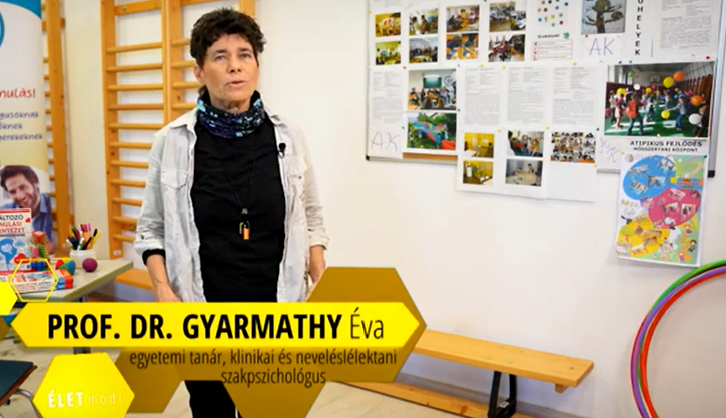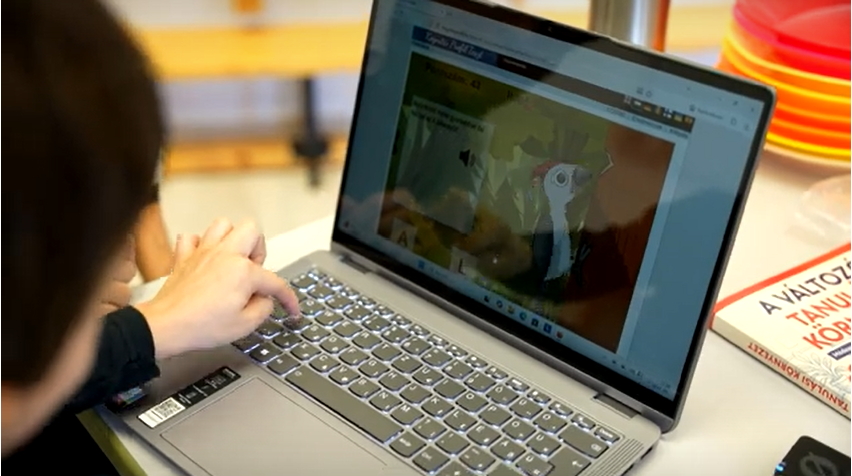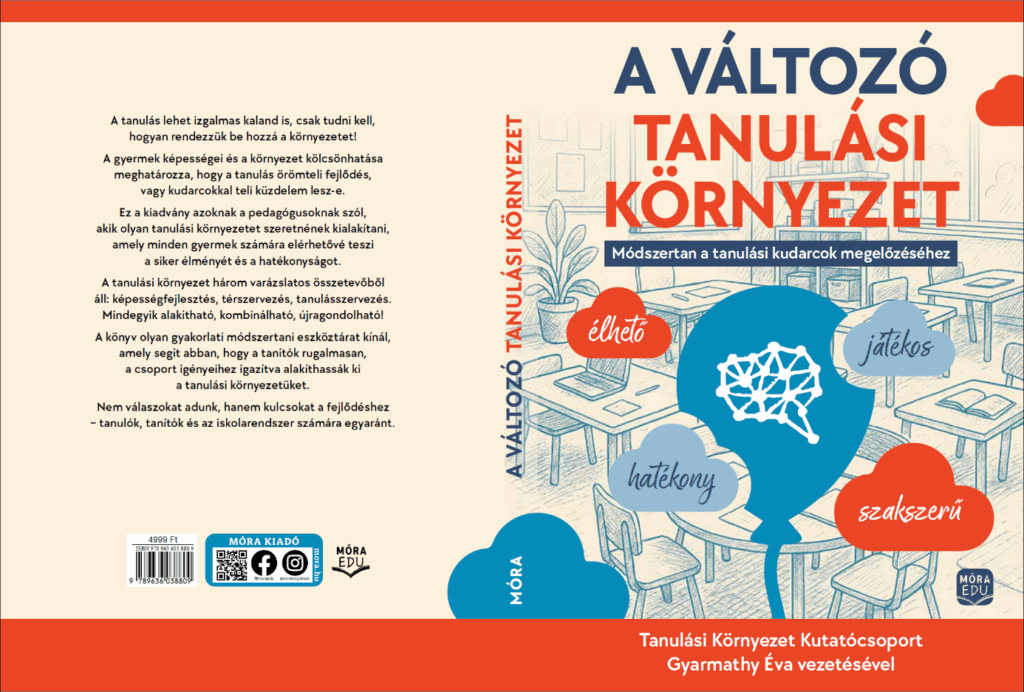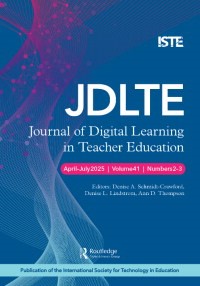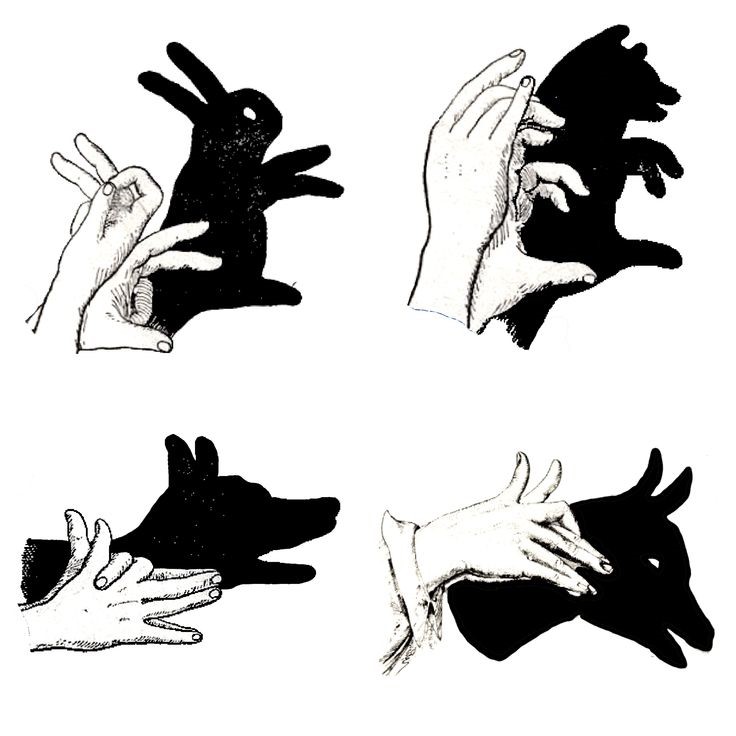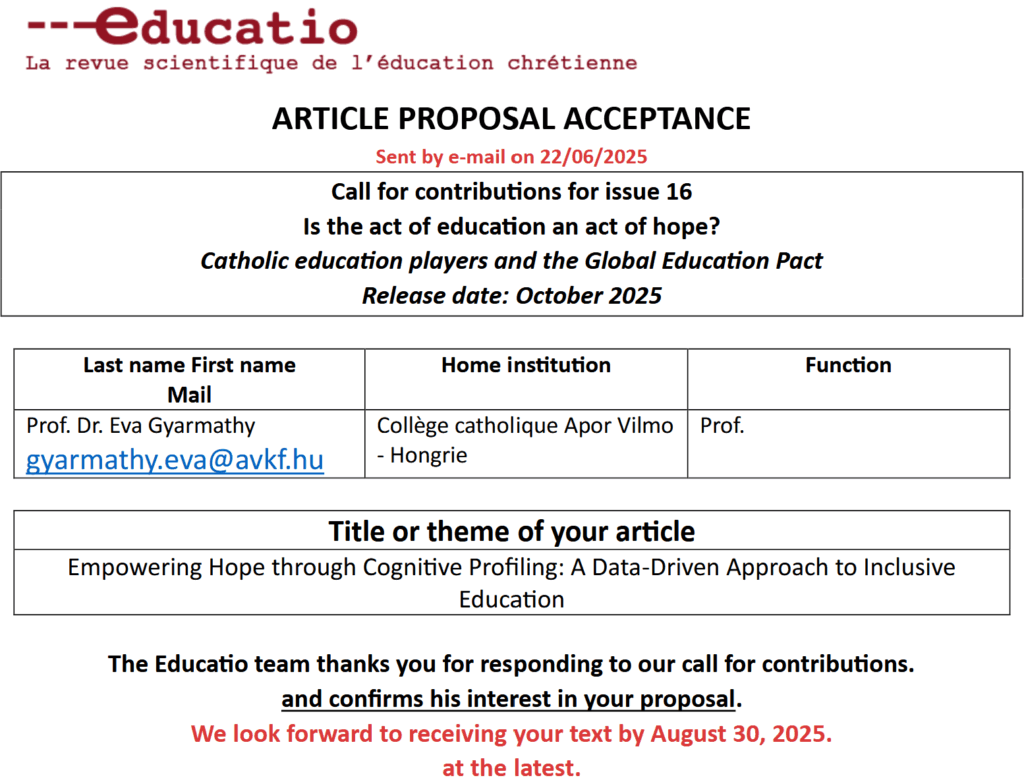On November 21, the Program Secretary communicated via email the rejection of the professional report. Since that time, however, no detailed or official evaluation has been provided. Consequently, albeit belatedly, we present here the text of the email together with the response of Éva Gyarmathy, head of the research group. The rejection:
Dear Research Group Leader, Dear Éva,
On November 20, the Review Committee evaluated the professional reports submitted under the MTA Public Education Development Research Grant. Unfortunately, based on the final report of the MTA–AVKF Learning Environment Research Group, the minimum publication requirements were not met; therefore, the Committee did not accept the final professional report.
The Committee’s unanimous decision is that, should the research group remedy the deficiencies by September 30, 2026, the professional report will be re-evaluated one year later. If the deficiencies are not remedied, the amount of the final year’s funding must be repaid to the MTA. The head of the host research institution will also be notified of the Committee’s decision.
Furthermore, at the Committee’s recommendation, the research group’s presentation has been removed from the December 3 event.
We kindly request that you take note of the above and submit the supplementary report by the specified deadline
We did not receive any further information; therefore, on November 27, Éva Gyarmathy sent the following response:
Dear Éva Sugár (Secretary), László Bozó (Chair), and Krisztián Józsa (Co-Chair),
It is my assumption that the message conveyed in the email we received from you does not constitute an official communication. To date, the formal review issued by the Review Committee has not arrived, and therefore I can only respond without knowledge of the specific details.
The opinion of the Review Committee is important to us, and naturally the Committee may decide that our work does not meet the required standards. At the same time, I must emphasize that, according to the call for proposals, our research and financial plan, and the grant agreement (all attached), we have fulfilled all of our obligations. For this reason, the threat of repayment of the funding is incomprehensible.
Throughout the project, we repeatedly received messages about changing conditions—initially promises of rewards, later threats of penalties. However, no contract amendment was ever made. In the absence of such an amendment, we were able to proceed only according to the original research and financial plan. The approved plan did not include publications requiring payment of fees. Our research group prioritized free international and domestic publications. In line with the spirit of the call for proposals, we involved teachers in the research and allocated costs accordingly. Nevertheless, we managed to cover the fee for one expensive Q1 publication, which was successfully published.
If the call for proposals had specified the number of publications requiring significant financial expenditure, we would have developed a completely different research plan and optimized the project for Q1–Q2 publications. Retrospectively, during the course of the research, it was not possible for us to make such substantial changes. On this basis, the threat of repayment of the grant funds by the Review Committee is unfounded, and we request its withdrawal.
Furthermore, it is incomprehensible that, after being invited to present the publication on the methodologies applied during the project, the Review Committee prohibited us from presenting our publication that disseminates the methodology developed in the research. This is despite the fact that it is clearly part of our work and, beyond Q1–Q2 publications, it is our obligation to contribute to the development of Hungarian public education. Our publication has nonetheless appeared, even if its presentation has been denied by the Committee.
Beyond the above, the decision is highly problematic from an educational policy perspective. The procedure of the Review Committee reflects the most characteristic features of the “black pedagogy” prevalent in Hungarian education: narrow, domain-focused evaluation; punishment and exclusion; persecution of diversity; unclear circumstances; and shifting expectations to which one is expected to adapt mid-process.
On behalf of our research group, I request that the procedure of the Review Committee be reconsidered. We expect not only a reconsideration of our own case, but also a fairer evaluation of other similarly penalized research groups, in line with the renewal of perspectives required for the development of Hungarian public education.
We continue to await the professional analysis provided by the Review Committee. It is difficult to conceive that, due to a factor not included in the research plan or the contract, the Review Committee of a program conducted under the auspices of the Hungarian Academy of Sciences would disregard the research group’s entire four years of work.


